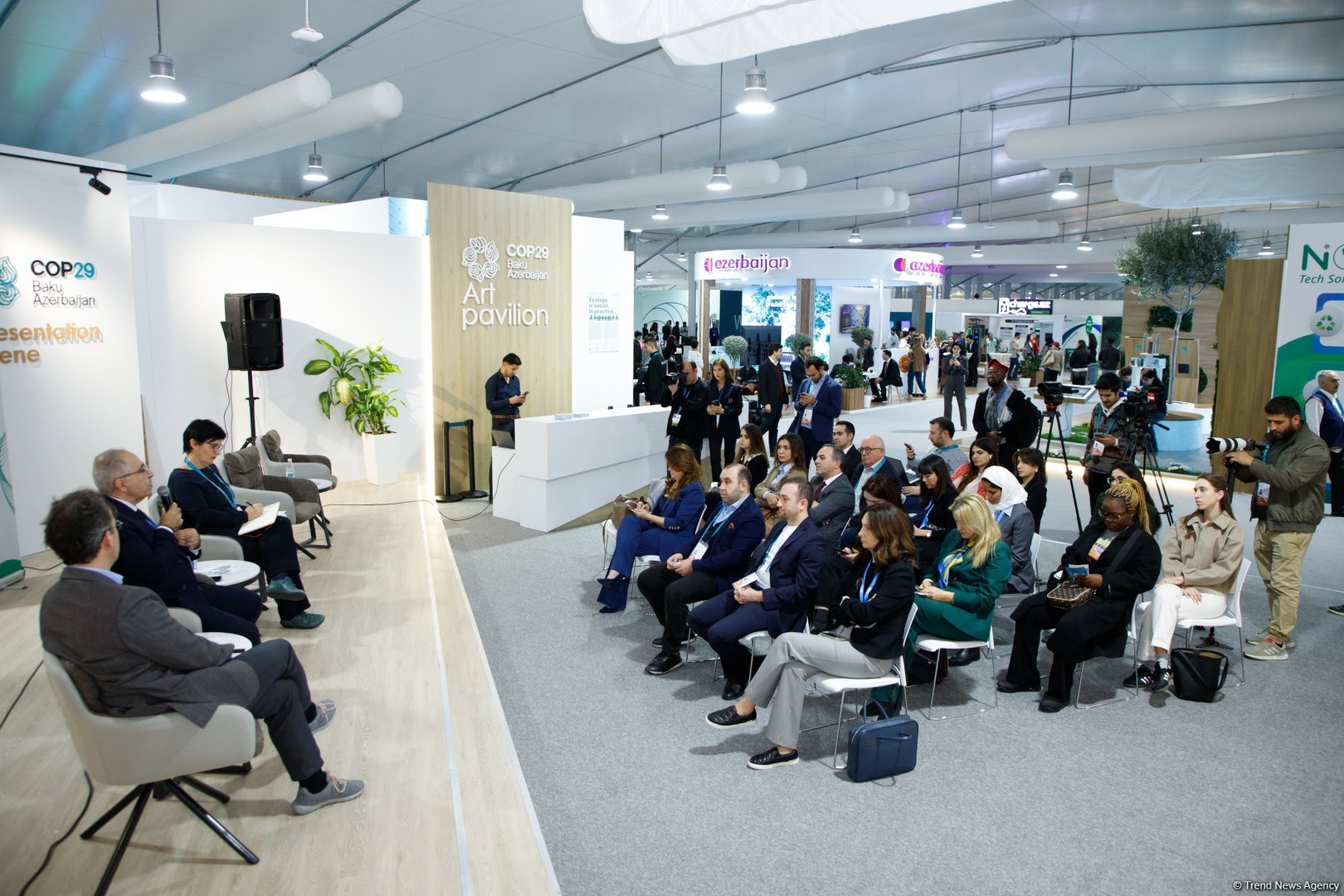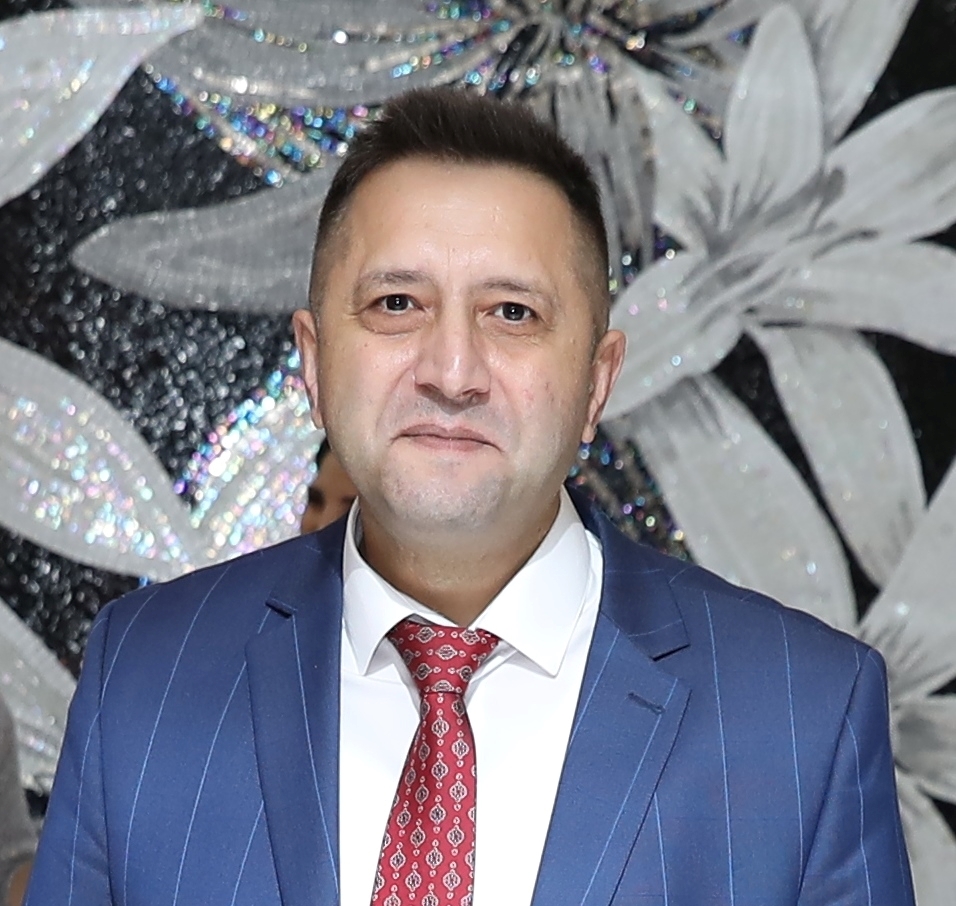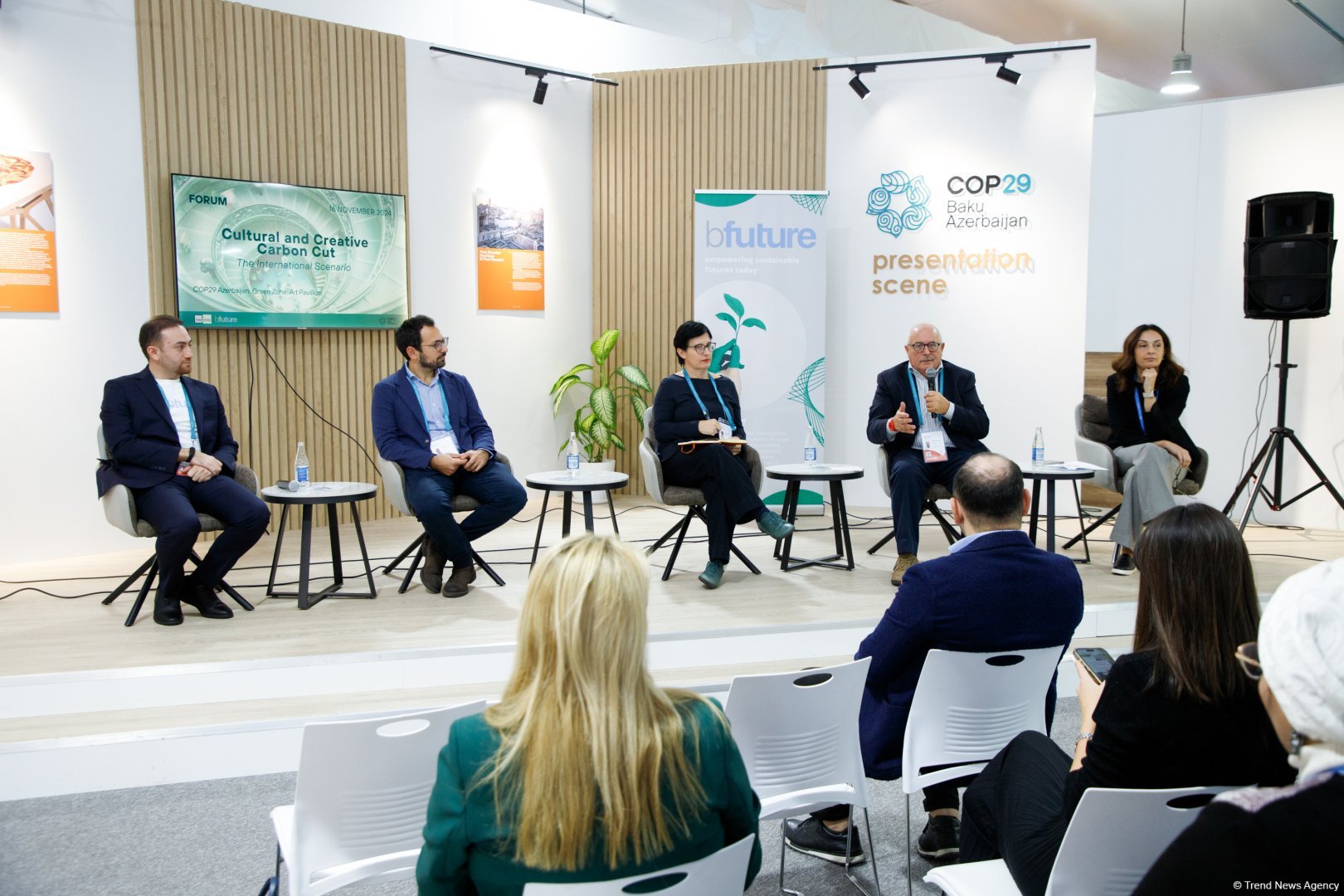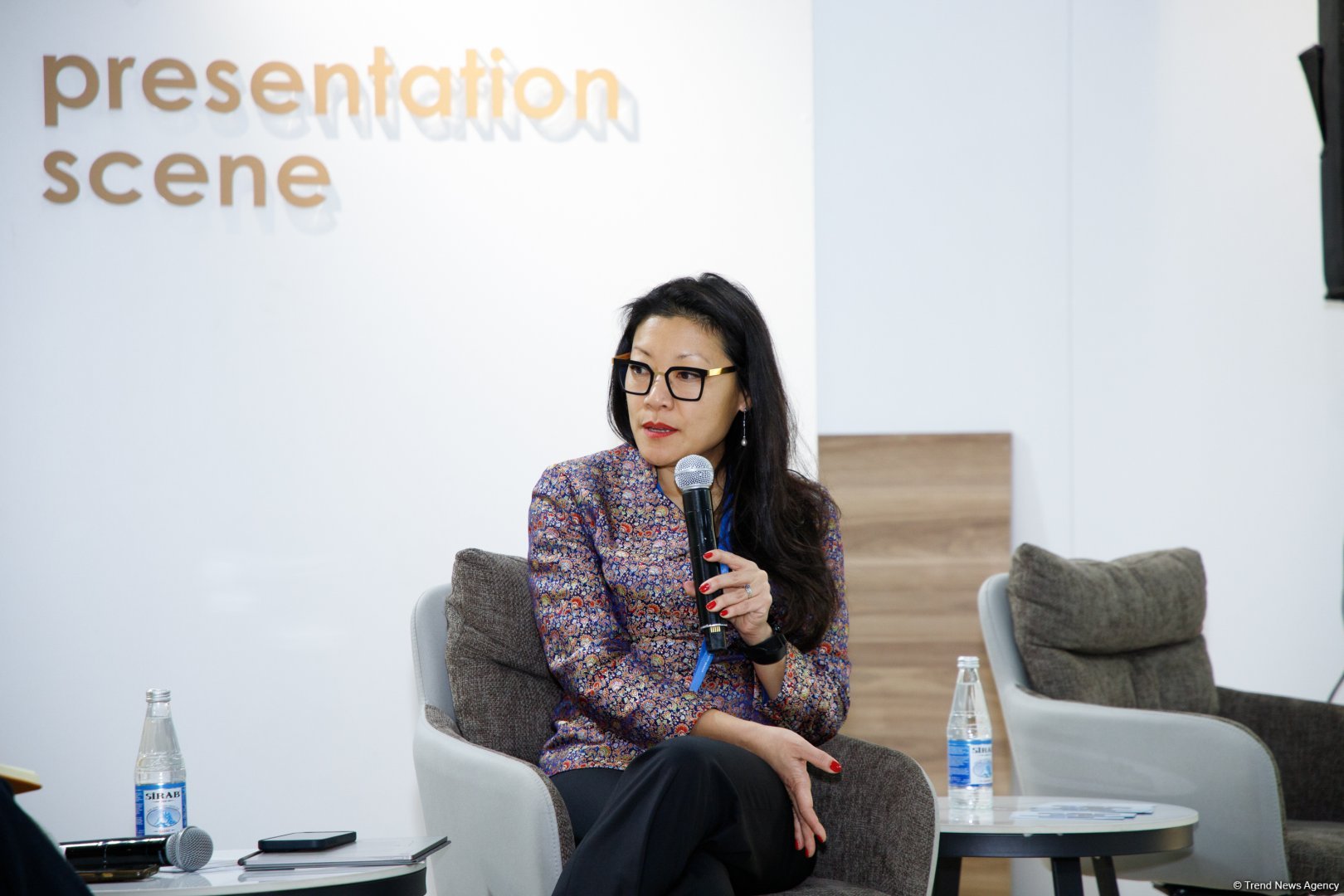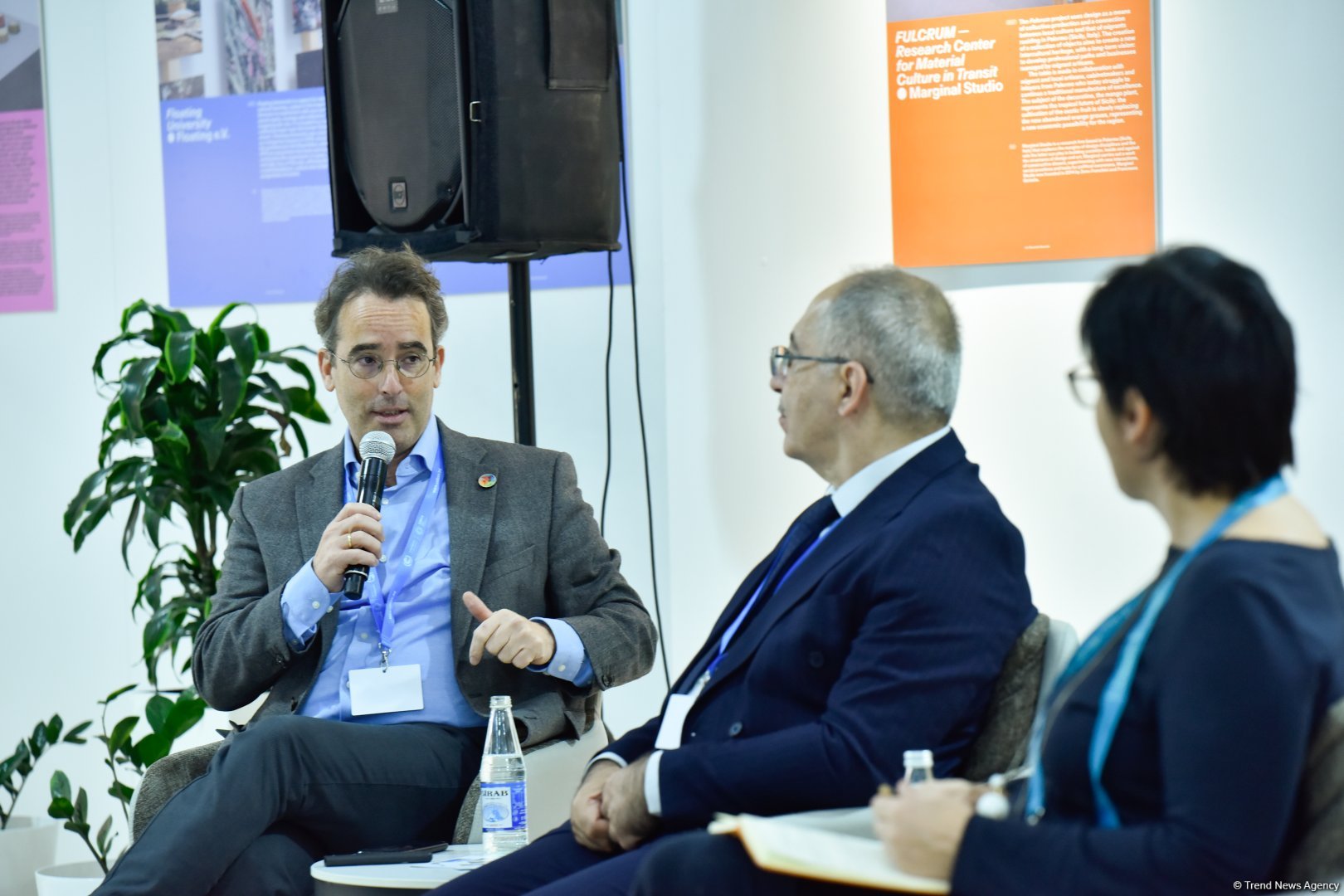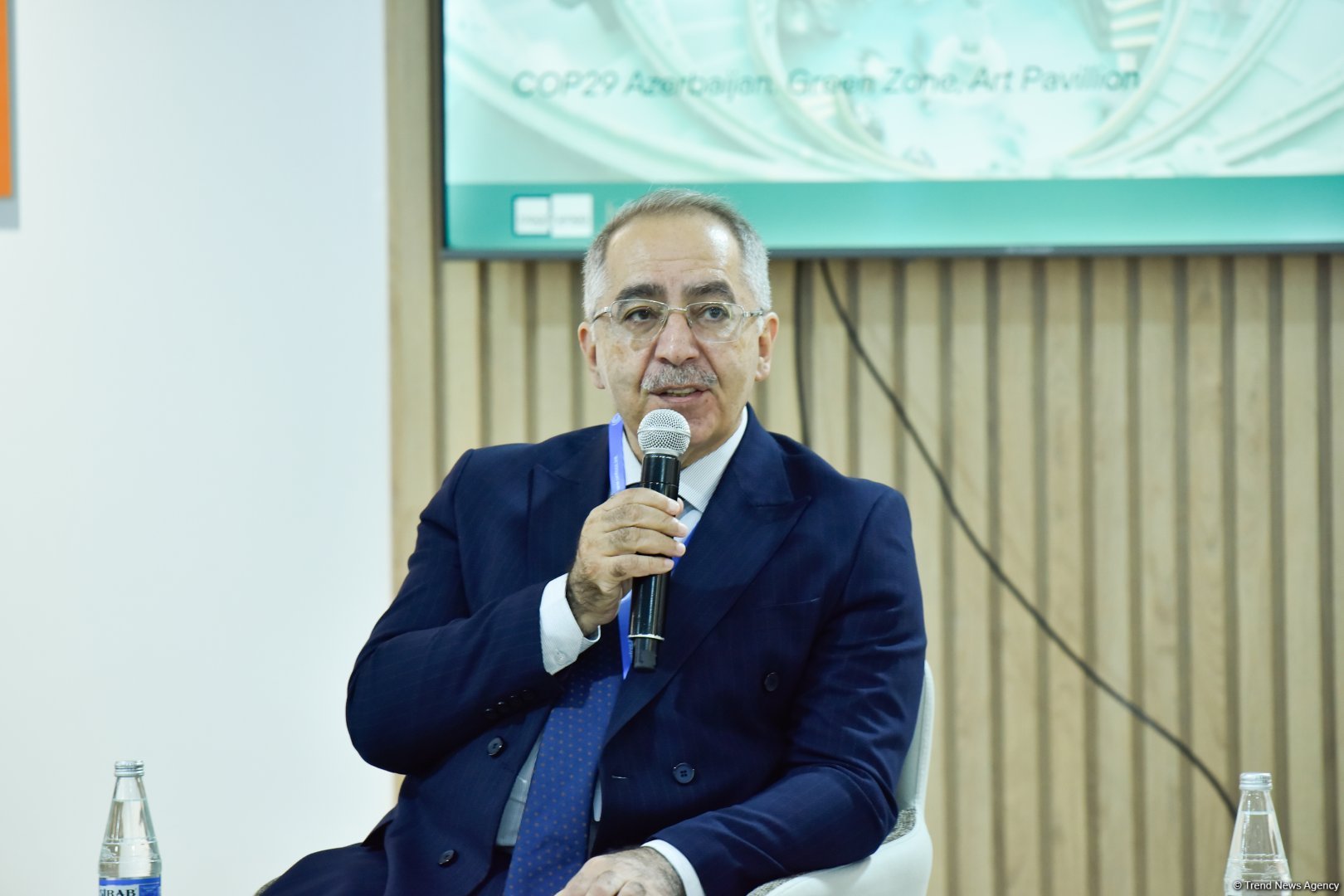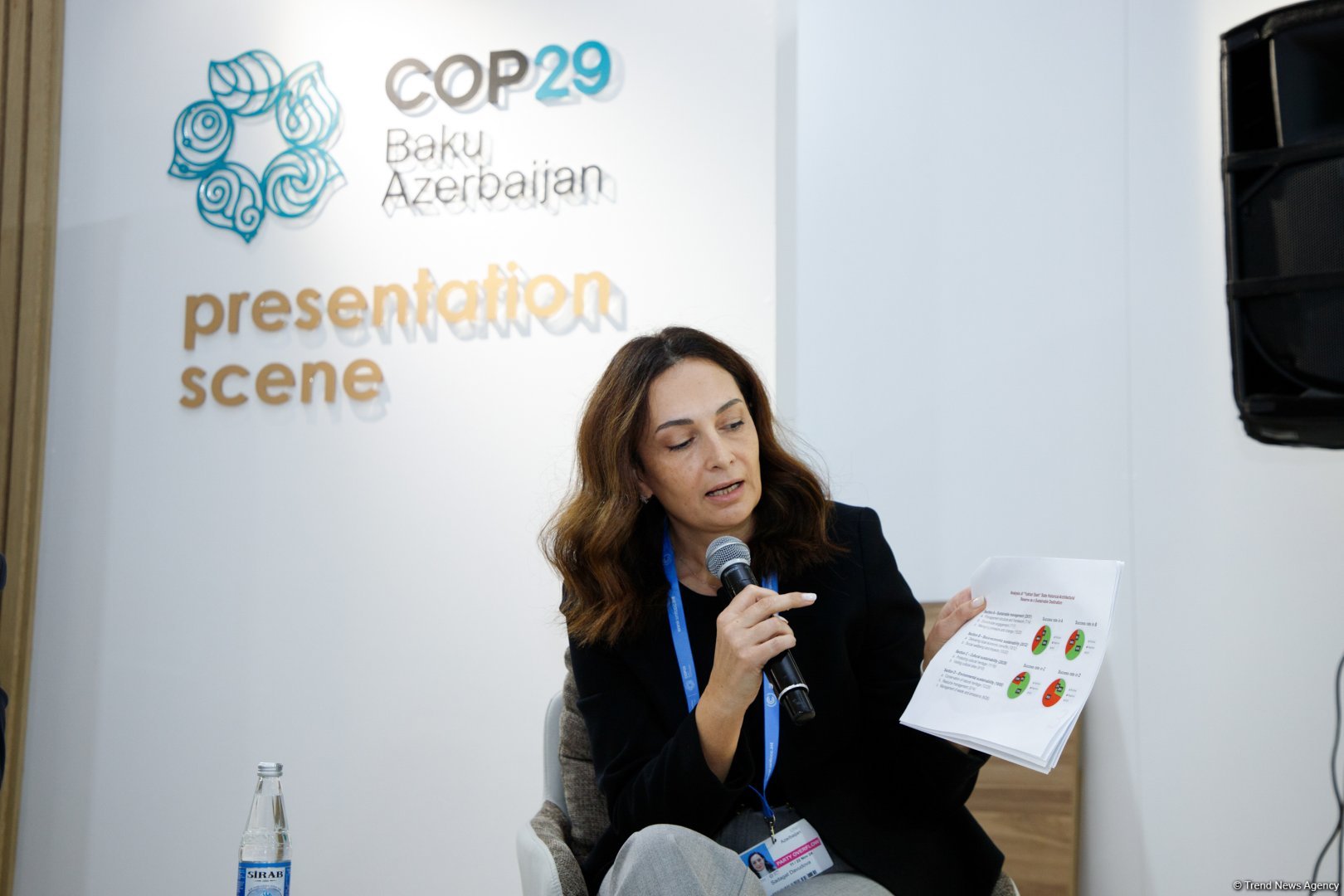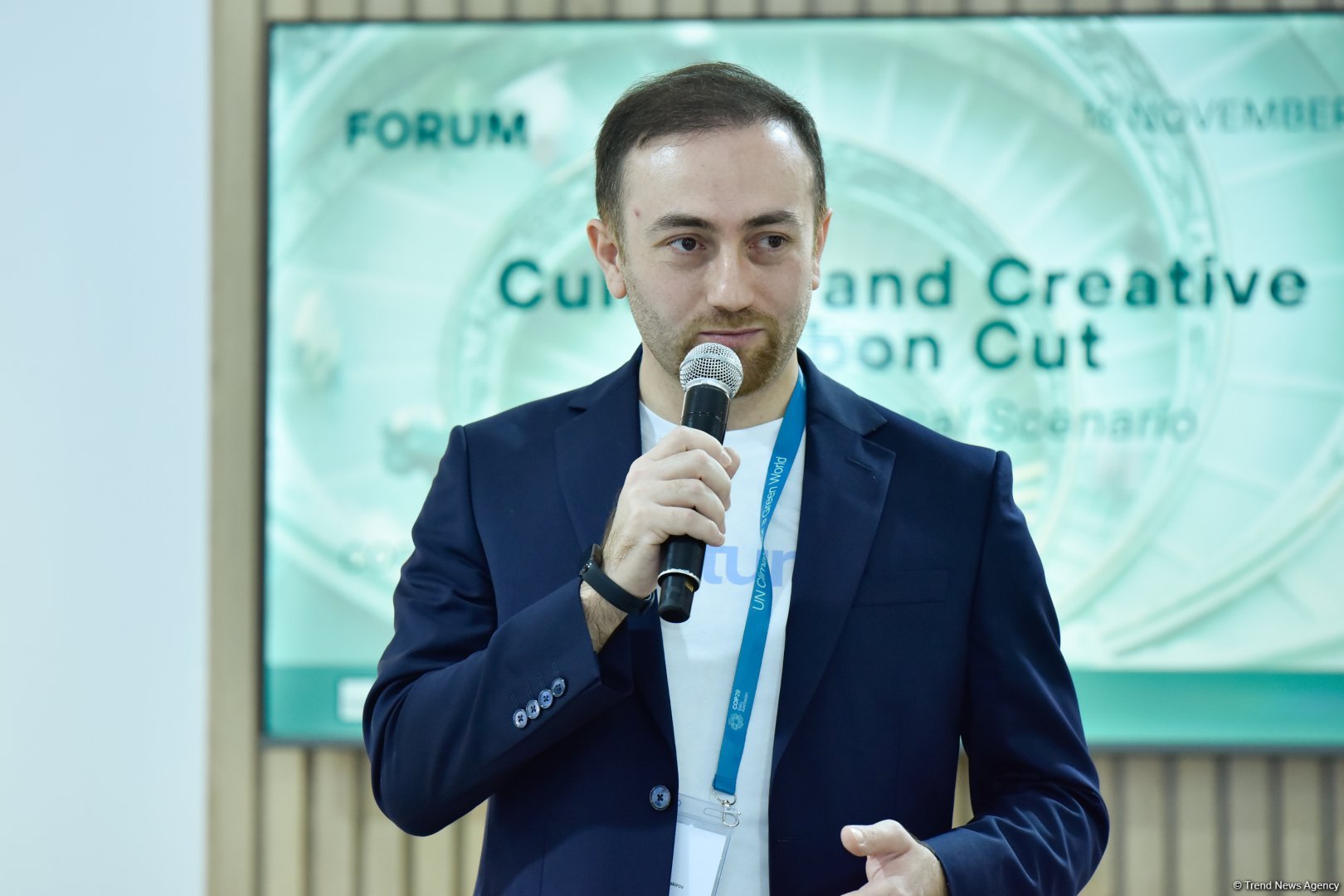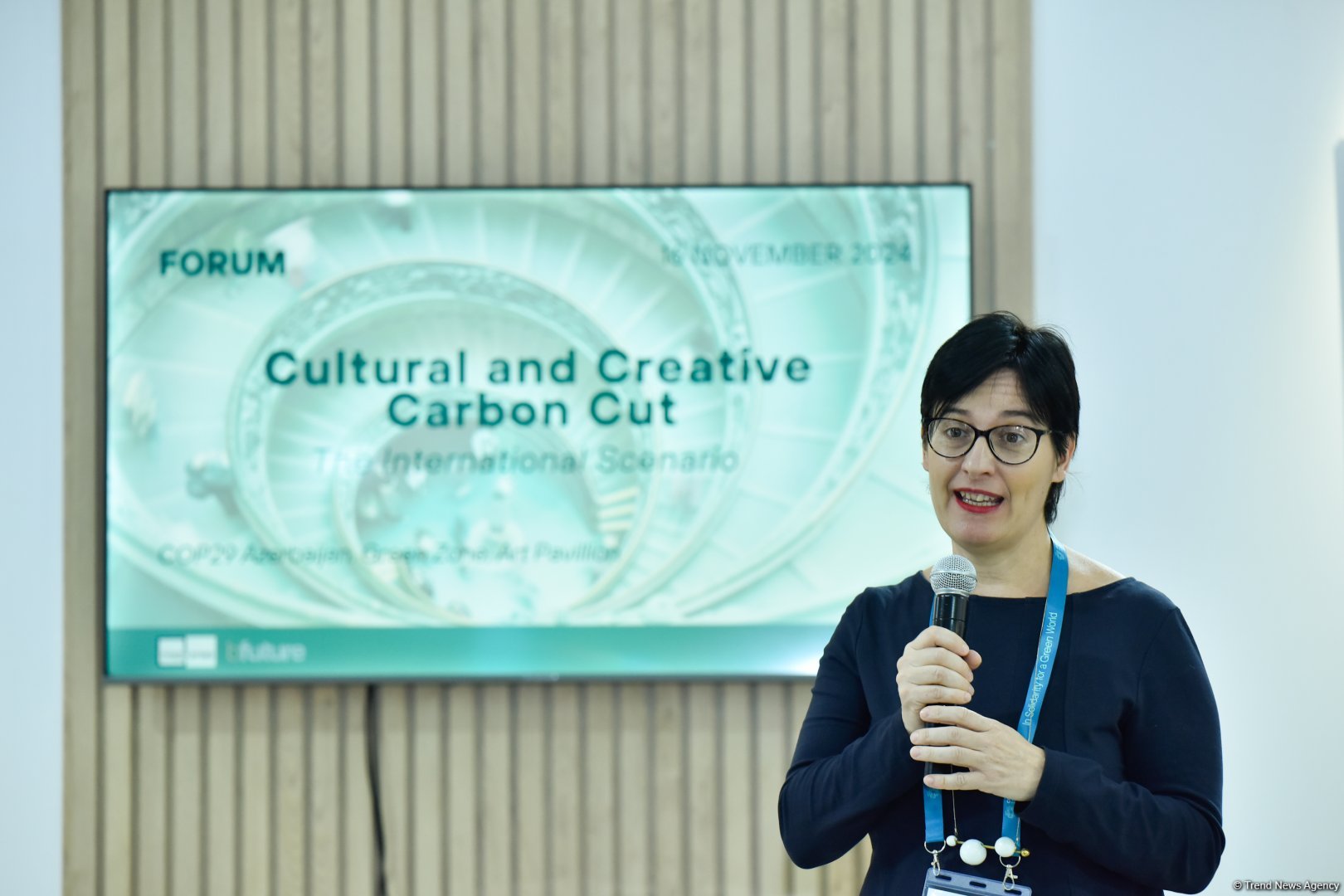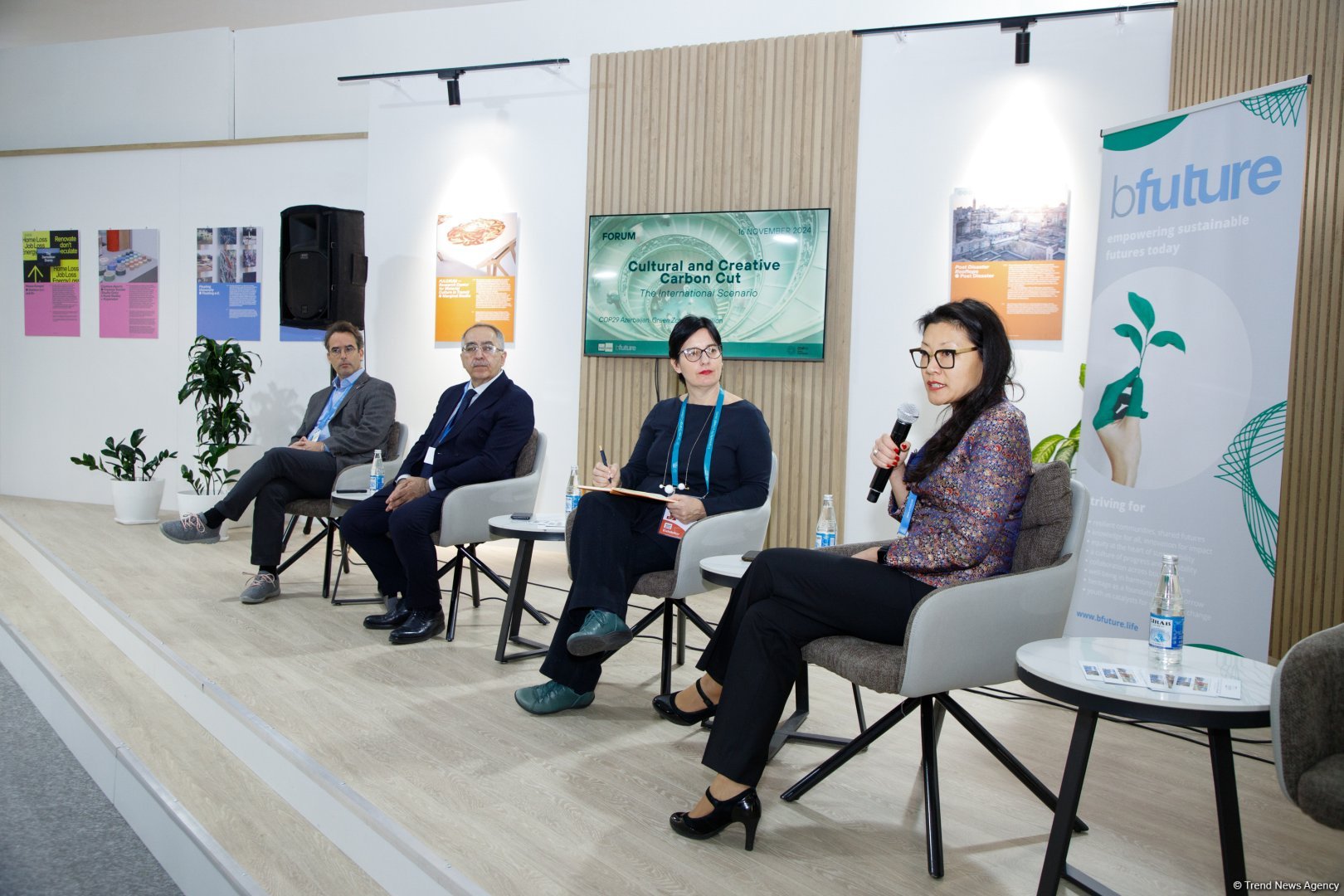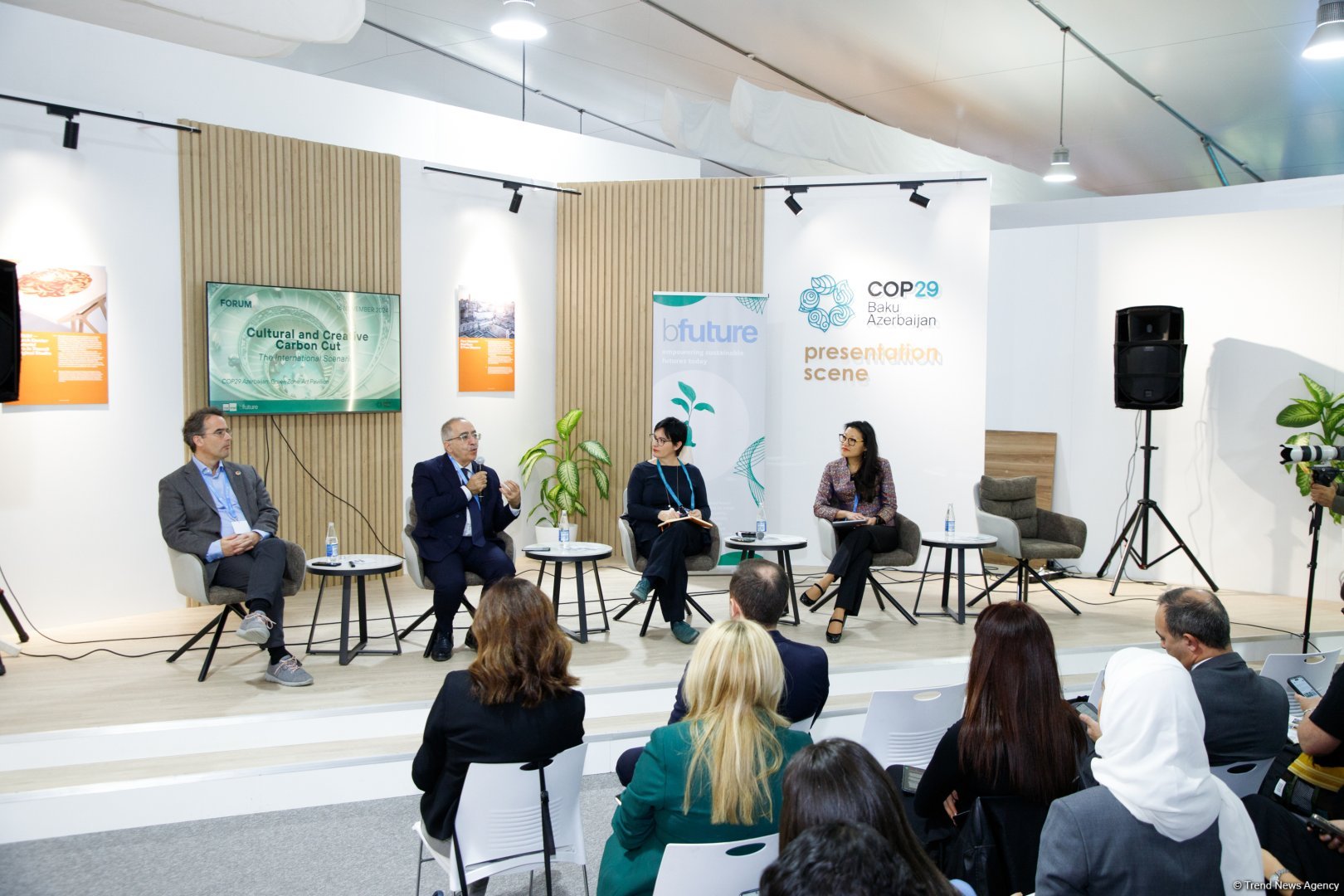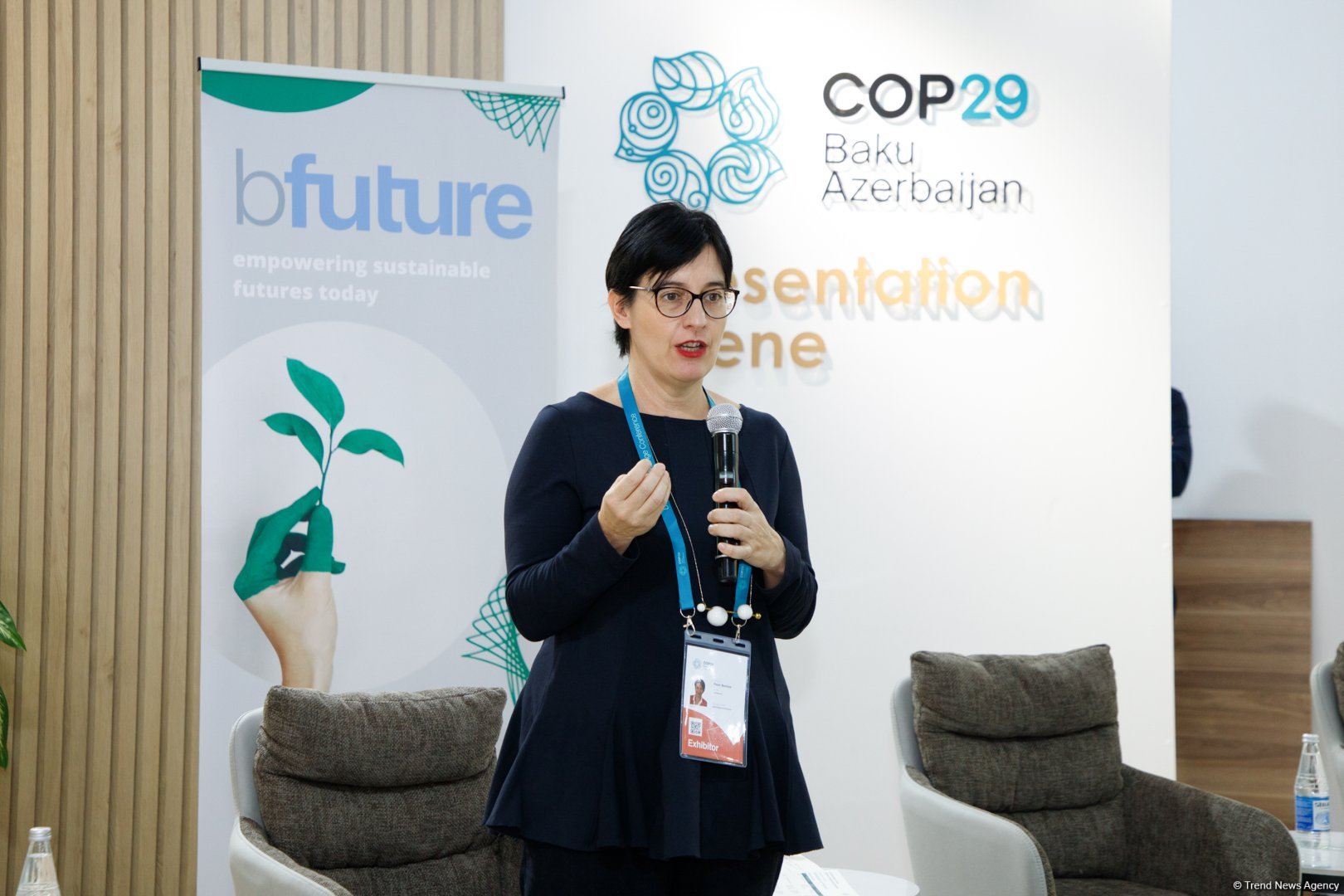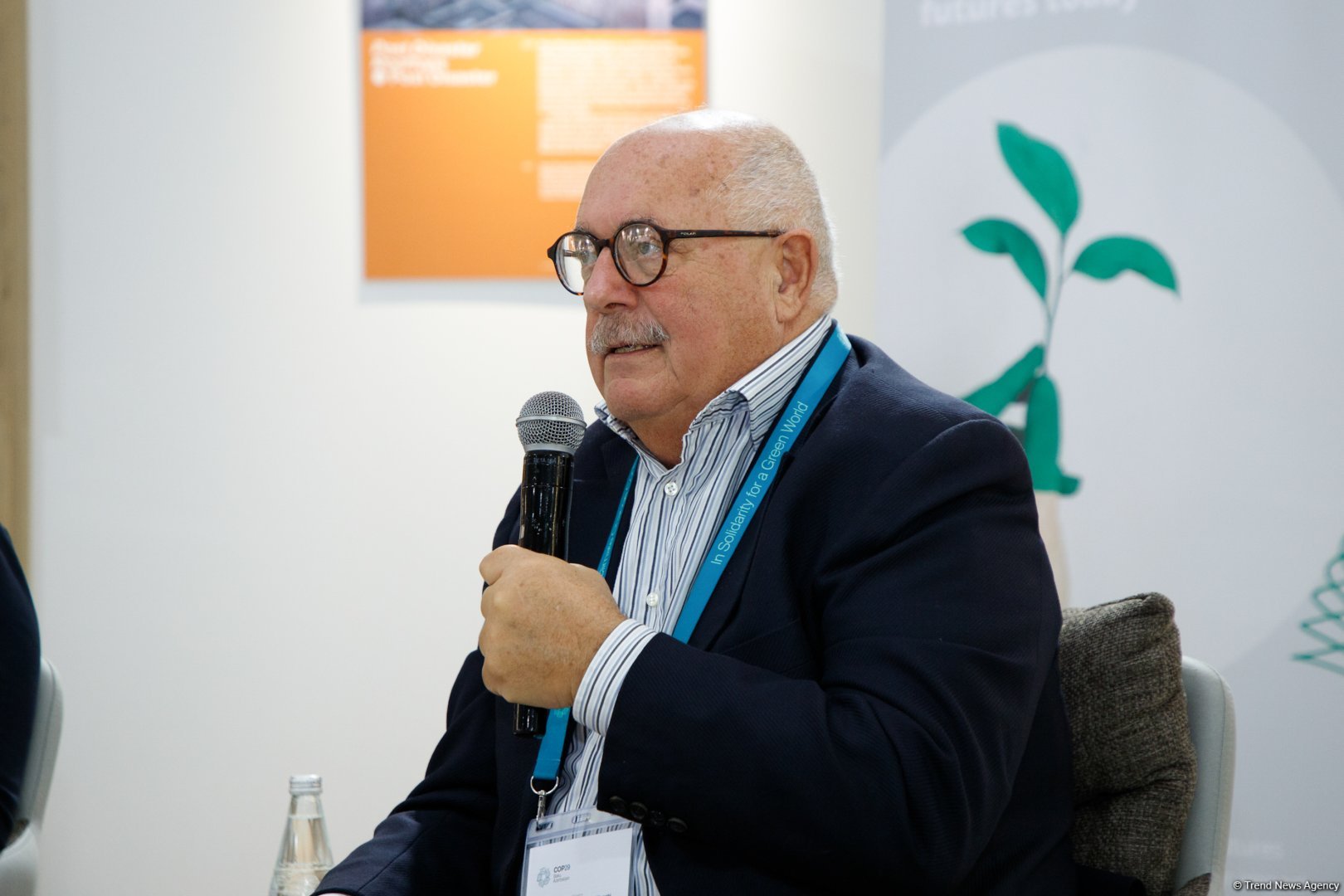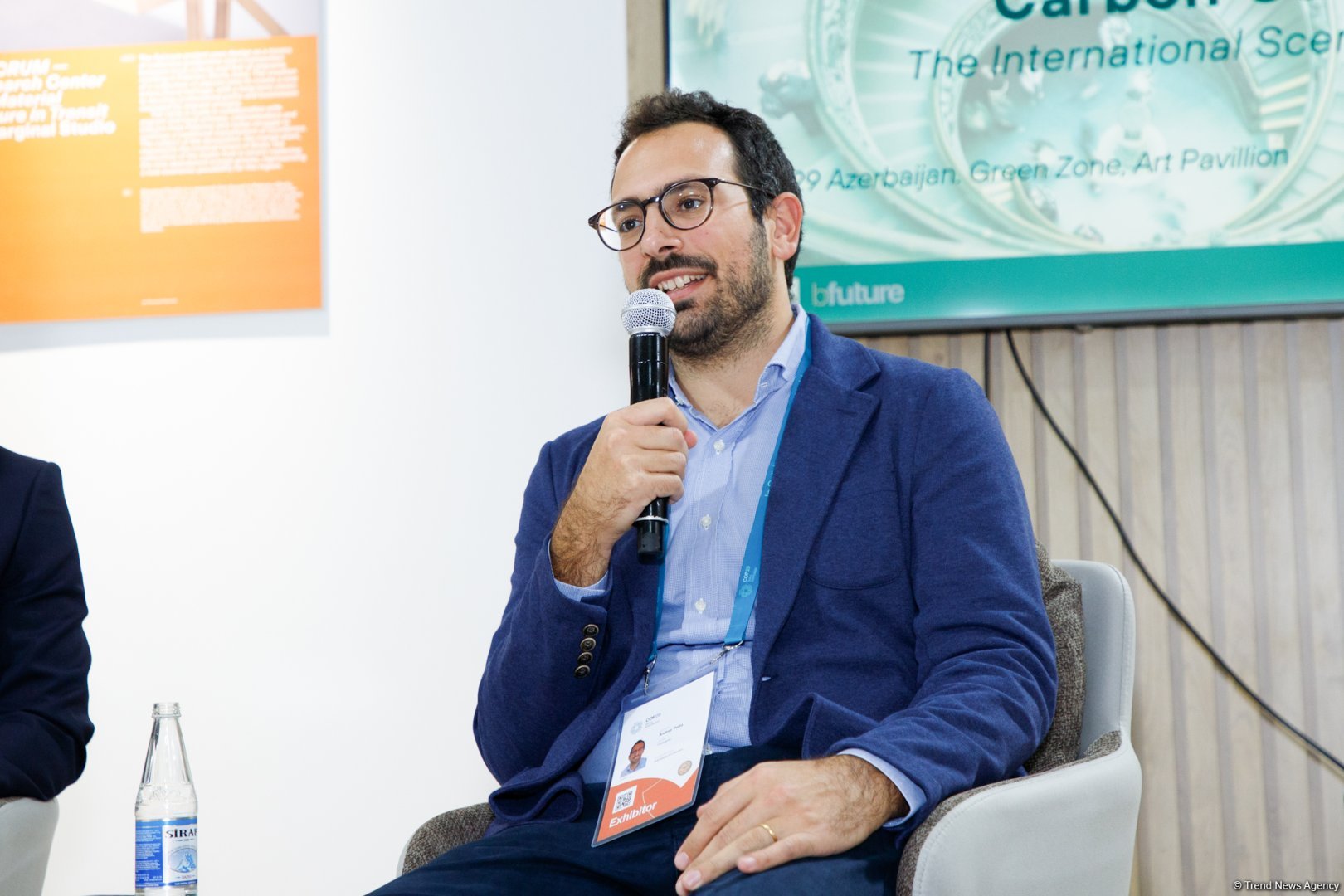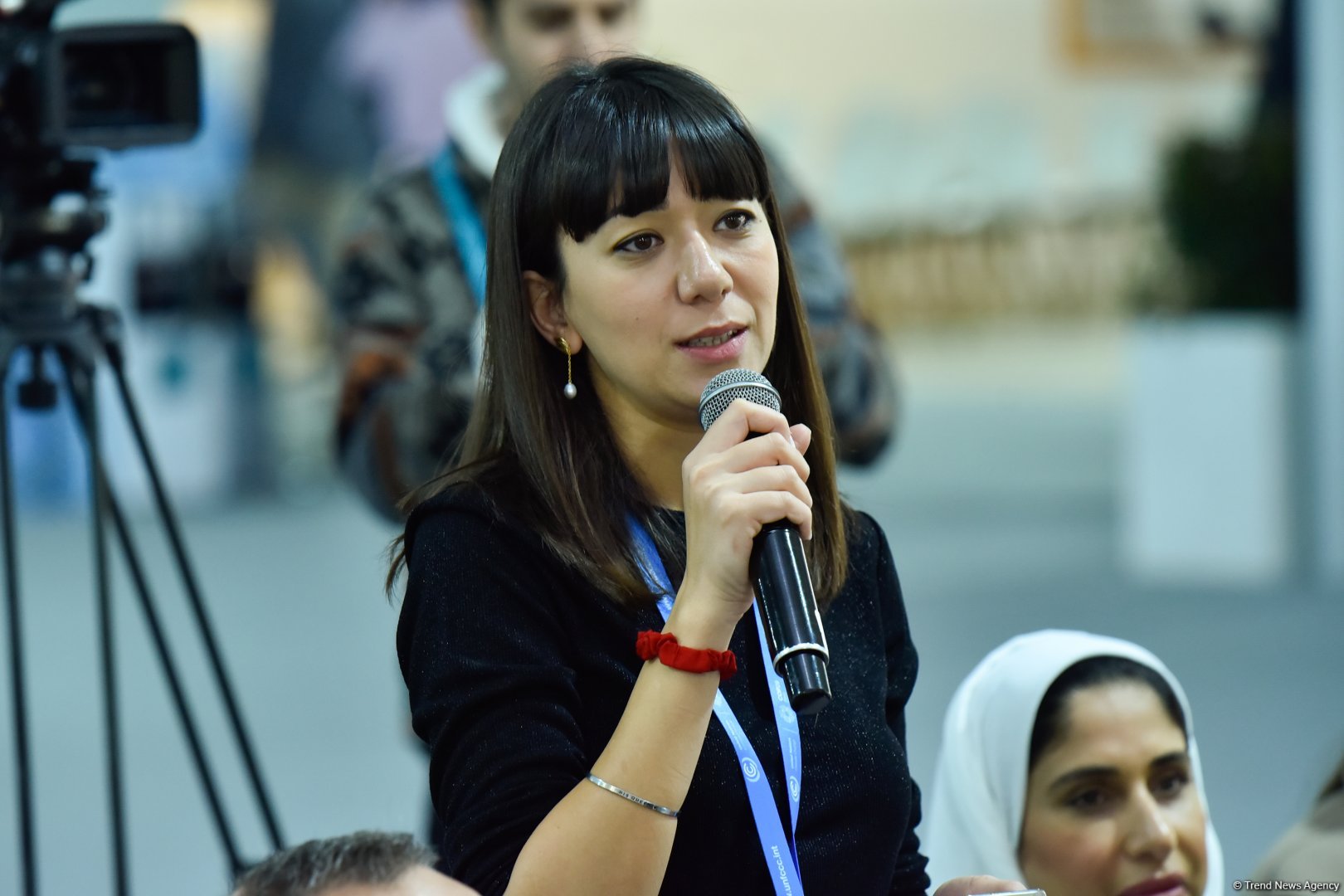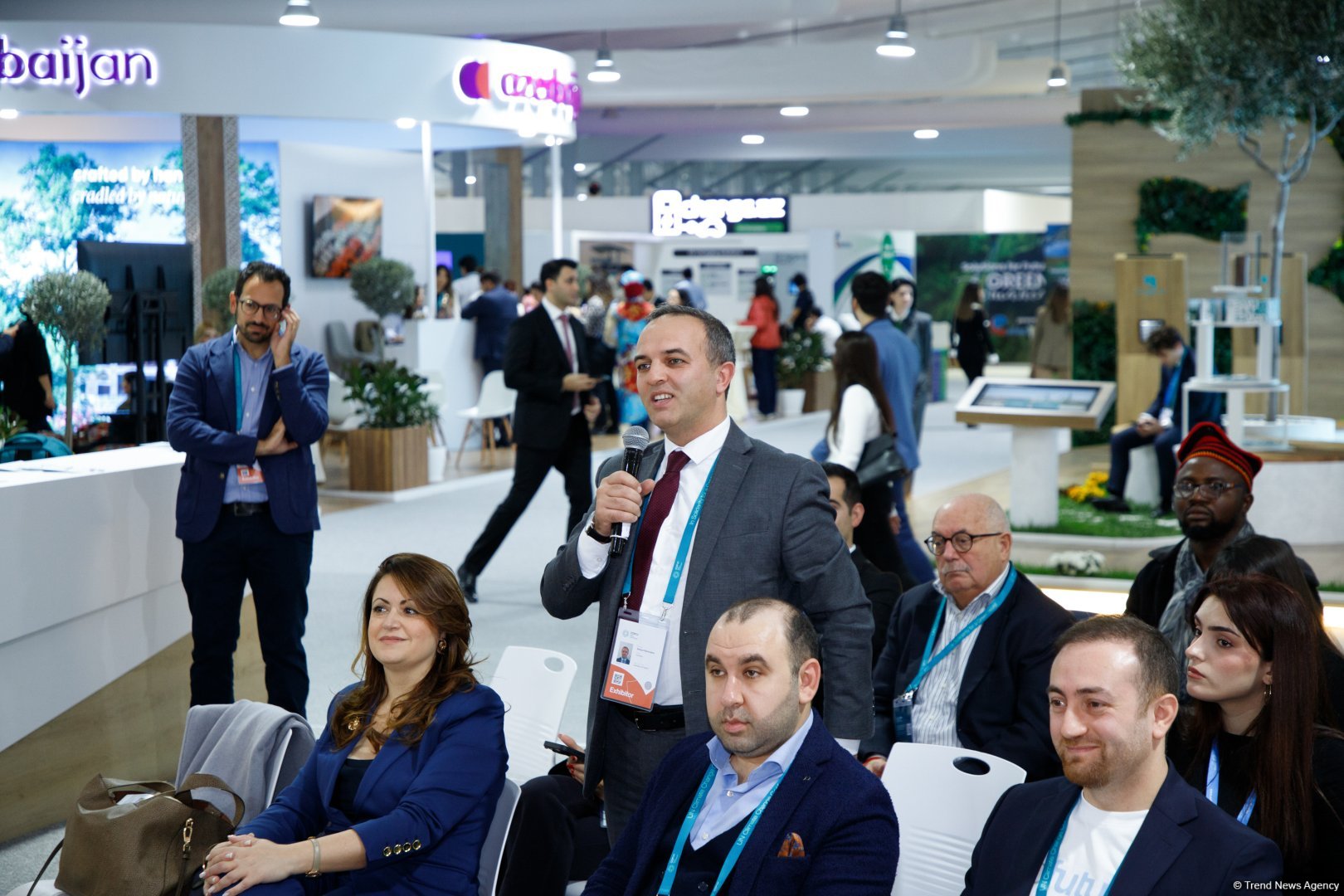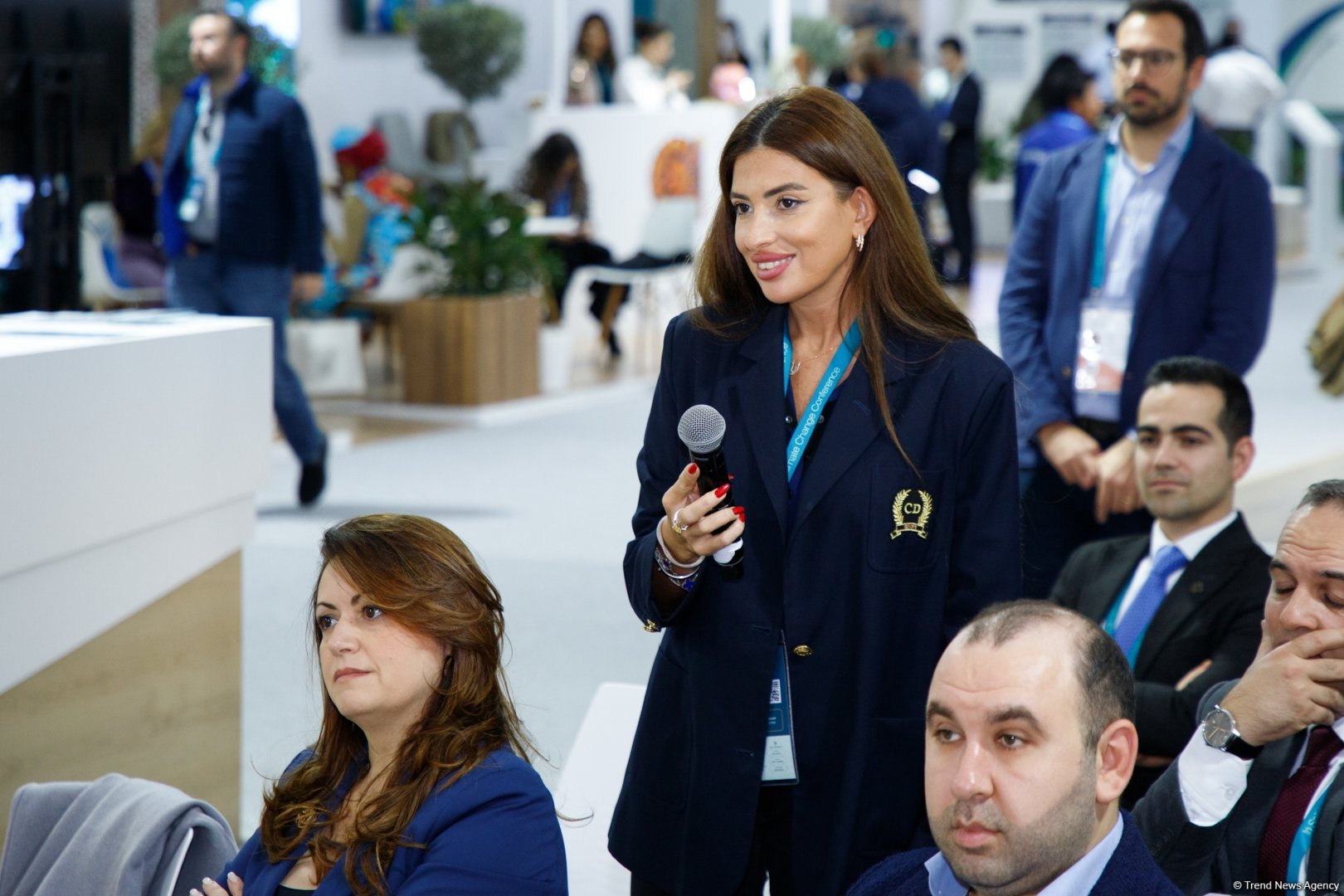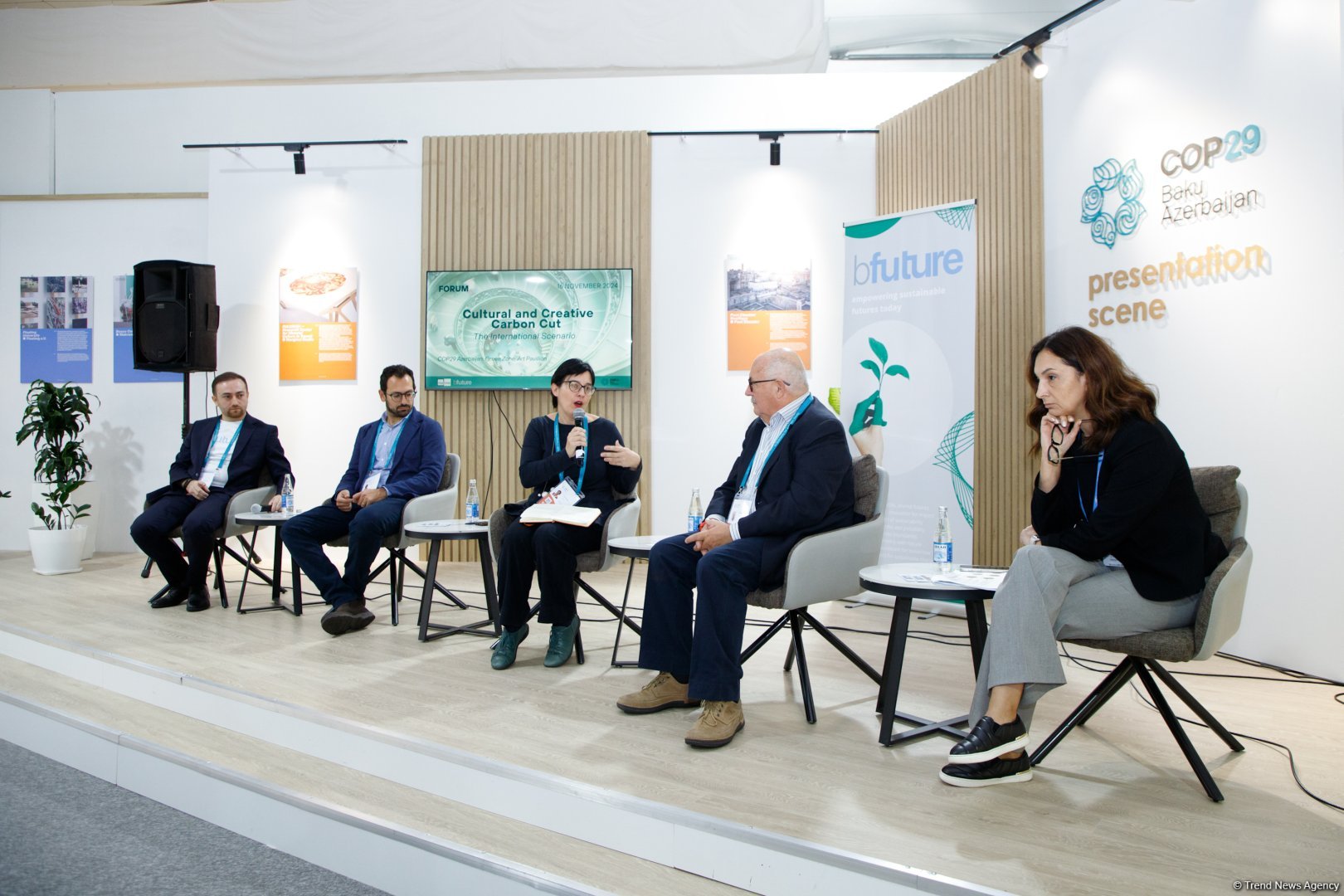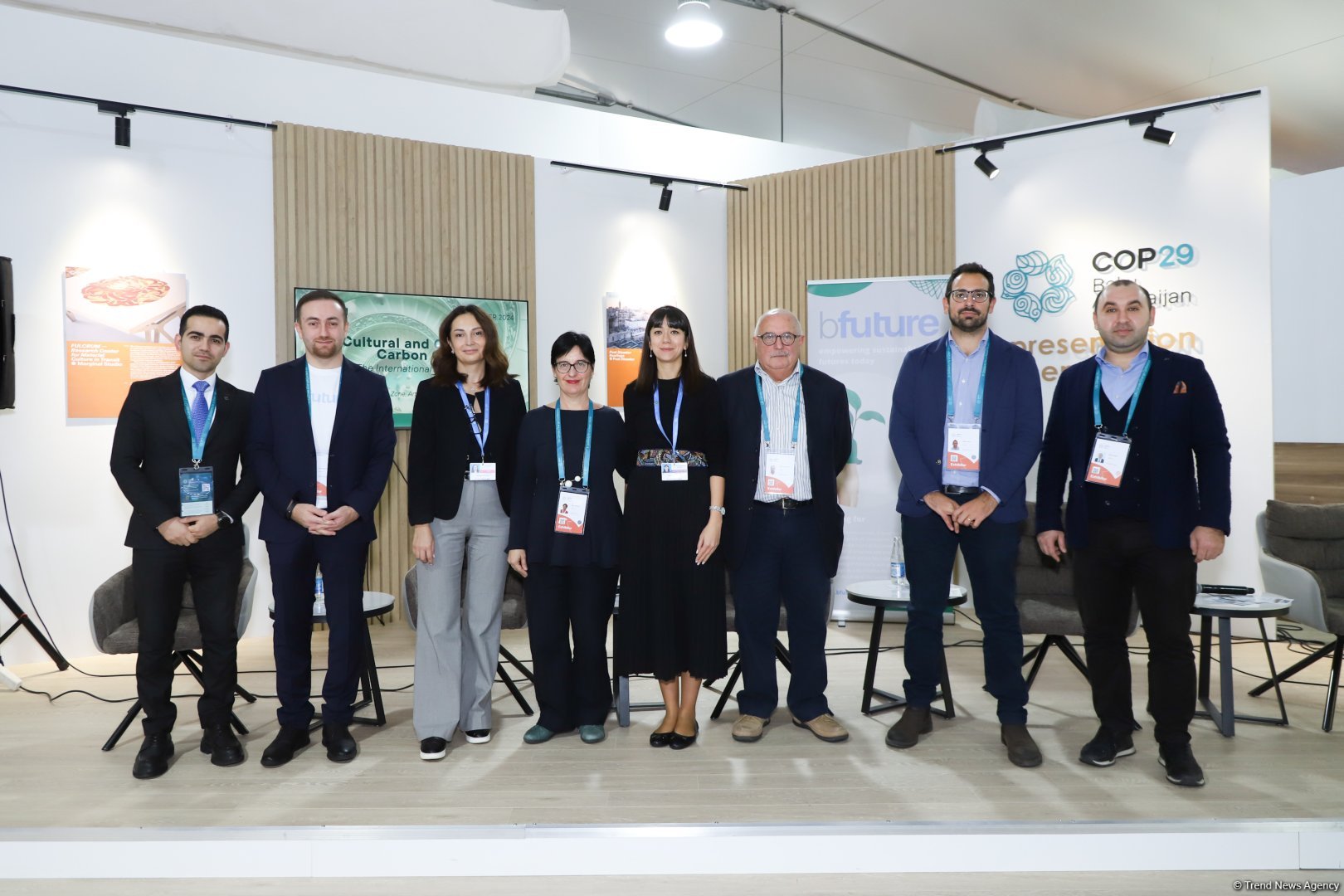BAKU, Azerbaijan, November 17. At COP29 in Baku, as part of the thematic day "Science, Technology, and Innovation / Digitalization," a forum titled "Culture and Creative Carbon Cut: The International Scenario" was held, Trend reports. The event was organized by Fondazione Santagata for the Economics of Culture (Italy) in partnership with the bFuture Initiative (Azerbaijan).
The international forum, dedicated to the multifaceted role of various sectors in combating climate change, provided a platform to discuss cultural, scientific, technological, and social approaches to sustainable development. Leading experts presented their research projects, shared successful examples of innovation implementation, and exchanged practical experiences from around the world.
The presentations and panel discussions featured notable participants, including Dorine Dubois, Chief of the exécutive office of UNESCO; Paola Borrione, President and Head of Research at Fondazione Santagata; Jahangir Salimkhanov, Adviser to the Minister of Culture of Azerbaijan; Sadagat Davudova, Deputy CEO at the Cultural Reserves Management Center under State Tourism Agency of Azerbaijan; Ramil Abbakirov, Cultural and strategic expert and Co-founder of bFuture Initiative; Alessandro Bianchi, International cultural heritage management and restoration expert; Daniel Povel, Representative of the global sustainable development organization NOW Partners; Anna Teresa Rondinella, UNESCO Chair on "Sustainable Energy Communities" at the University of Pisa; and Andrea Porta, Project Manager for Tourism and Just Transition at Fondazione Santagata.
The panel sessions addressed key issues in sustainable development, including the contributions of science, technology, innovation, and the cultural sector to tackling environmental challenges. Experts emphasized the importance of a cross-sectoral approach, combining cultural, technological, and scientific initiatives to develop effective strategies for carbon reduction and sustainability promotion. It was highlighted that systemic change is achievable only through the involvement of all societal and economic sectors.
The event also featured a presentation on the activities of Fondazione Santagata and launch of the bFuture Initiative.
It was noted that Fondazione Santagata actively engages in research and projects focused on cultural heritage management and the integration of sustainability into various aspects of society. The organization collaborates with UNESCO on initiatives for the conservation of cultural and natural assets, the implementation of innovative management approaches, and the sustainable development of territories.
A key area of Fondazione Santagata's work is the promotion of sustainable tourism based on cultural and natural heritage. This involves creating new opportunities for regional economic development and strengthening creative clusters. The organization also actively explores the link between cultural practices and ecological transition, developing innovative solutions to minimize environmental impact.
One of the forum's highlights was the launch of the bFuture Initiative, co-founded by Ramil Abbakirov and Bahram Jafarli.
"bFuture was created to help people and organizations become more sustainable, innovative, and forward-thinking. This initiative encompasses a wide range of areas, including support for innovation, fostering sustainable mindsets, promoting eco-friendly solutions, and driving social integration," said Ramil Abbakirov.
In collaboration with its partners, the initiative aims to operate not only on a national level but also to engage in international cooperation to address global challenges.

